
Want to take your home to the next decor level? Try sprucing up your living space with some indoor houseplants, or decorate your outdoor patio with beautiful green plants. You don’t have to be a plant expert or have a green thumb to be a plant parent. Whether you are looking to add a pop of color to your living room, or the perfect foliage to accentuate your window ledge, there are plenty of houseplants that are compatible with your lifestyle and living space.
Benefits of Having Houseplants
We instinctively enjoy living and working in green spaces. But is there more to it? Besides classing up your house and bringing the beauty of nature into your home, houseplants also provide several benefits to improve your health and well-being, especially if you enjoy gardening. Below are some of the benefits of having houseplants in your home:
Houseplants in Your Environment Can Help Reduce Stress Levels
A study published in the Journal of Physiological Anthropology found that having plants in your home or office can reduce physiological and psychological stress. Gardening tasks were recorded to reduce the stress responses such as lowered heart rate and blood pressure in participants. This shows that participants found the act of taking care of plants as therapeutic and stress relieving.
Improve Mental Health
Indoor gardening can benefit those who struggle with mental illnesses. Horticultural therapy has been around for centuries. Researchers report that taking care of plants can improve mental health conditions such as depression, anxiety, and dementia. In fact, some medical clinics in the UK are “prescribing” potted plants to patients who are dealing with certain mental health conditions.

Improve Your Indoor Air Quality
Recent findings show that plants (the real ones, not the fake ones) can freshen air naturally by helping purify the indoor air of contaminants. However, a large number of plants are needed in one’s home in order to equal the air purifying efficiency of modern biofilters. Here are some examples of houseplants that can freshen air:
- Areca, lady, dwarf date, bamboo palms
- Boston fern
- Spider plant
- Ficus tree
- Rubber tree
- Parlor palms
Plants Can Boost Productivity
Several studies reported that plants can improve an individual’s productivity and creativity. This study reported that university students were found to work 12% faster when there were plants in their vicinity.
Plants Promote Recovery
Being around nature may boost recovery from an illness. Research conducted in 2002 reported that people recuperating from surgery required less pain medication and had a shorter hospital stay than those who were not looking at greenery. Is this why so many people bring a potted plant as a gift when they visit loved ones in the hospital?
Best Houseplants According To Your Needs
Indoor plants are a lovely addition to any home. However, you might be overwhelmed by the options of houseplants to choose from. There are big plants, small plants, hanging plants, viney plants, succulents and so much more, all with different levels of maintenance. Whether you are a dog parent looking for a low maintenance, pet-friendly option, or looking for a huge green centerpiece to help purify the air in your space, there is a perfect houseplant for everyone. See below for the different types of houseplants for different needs.
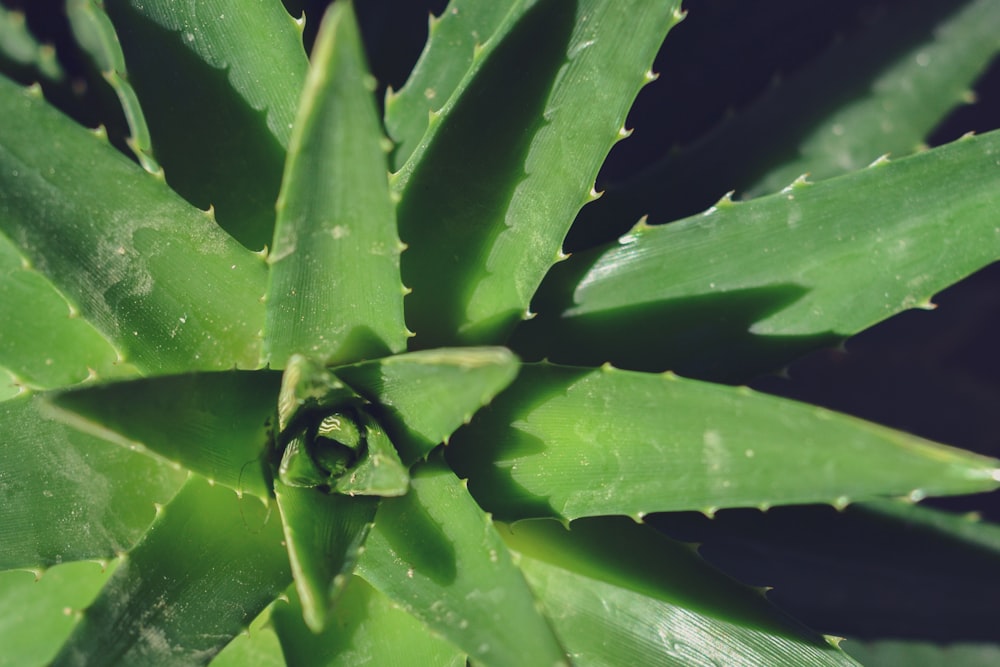
Aloe Vera: A Low Maintenance, Medicinal Indoor Plant
Aloe Vera is a low maintenance indoor plant. Simply keep it in a bright, sunny spot and water it every 2-3 weeks. Besides adding a pop of color to your home, you can also use aloe vera in your skincare routine. It has various healing properties such as soothing burns and wounds as well as being anti-bacterial.
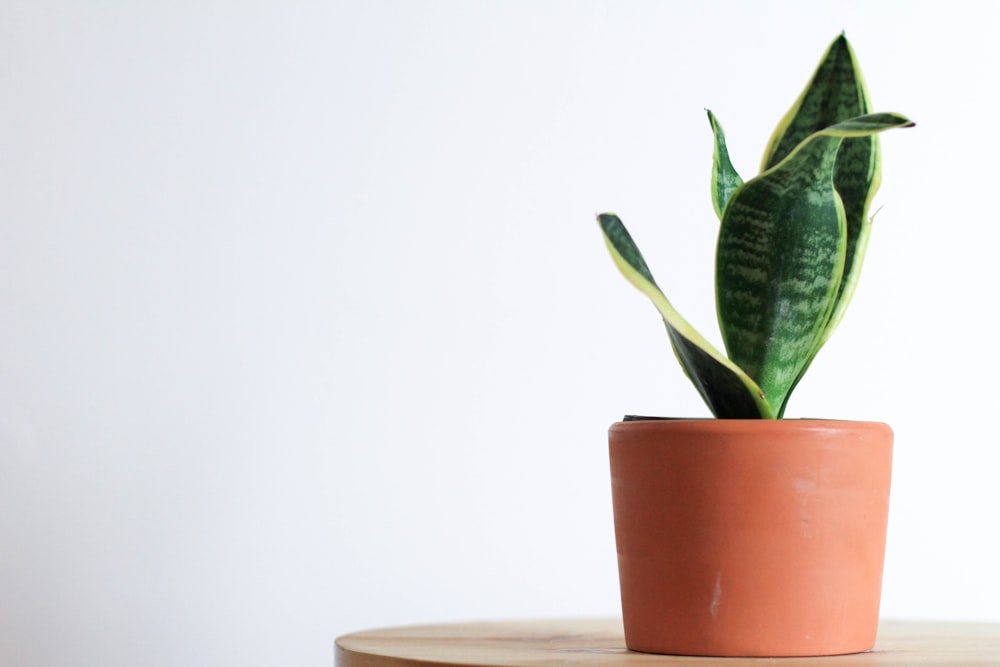
Snake Plant: A Low Maintenance Indoor Plant for Small Spaces
Don’t be worried if you don’t have a green thumb. The snake plant is known for surviving droughts and requires minimal care, making it perfect for newbies. To keep the plant looking its best, water it when the soil runs dry.
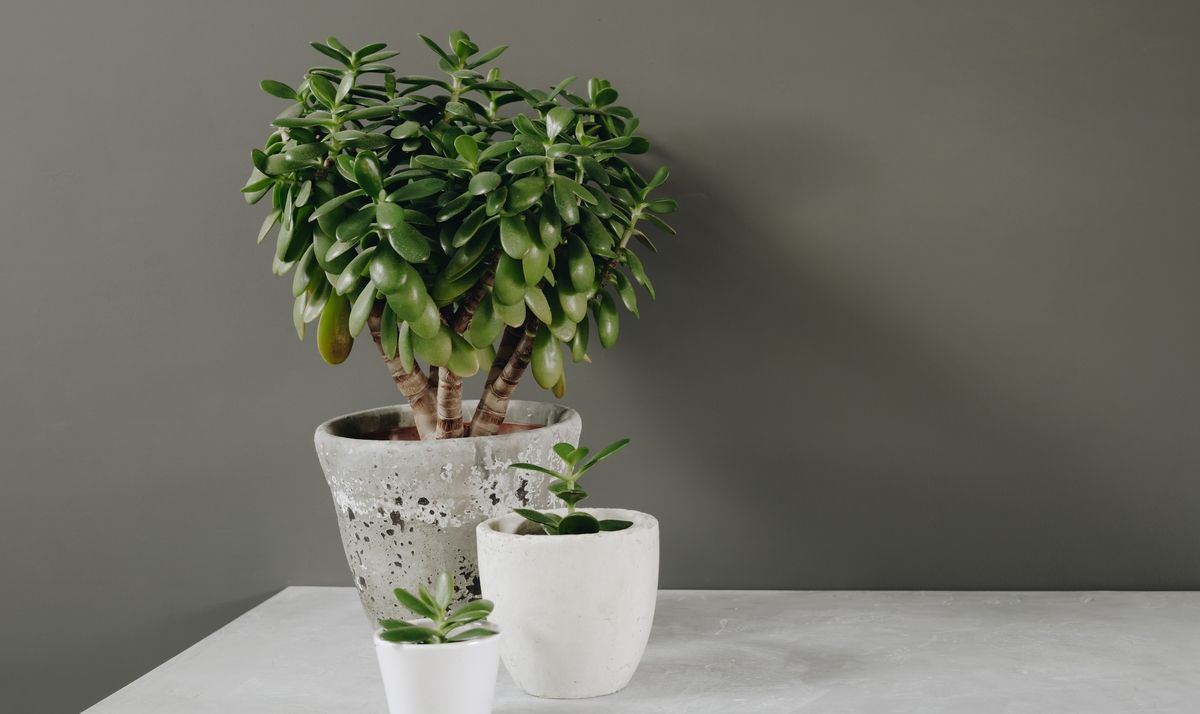
Money Tree: Best Indoor Plant for Good Luck
Keeping a money tree in your home is believed to bring good luck and wealth to the home. In Chinese culture, the five leaves on a money tree branch symbolizes the five Feng Shui elements. With its signature braided trunk and glossy leaves, this unique plant can add a luxurious feel to any home.
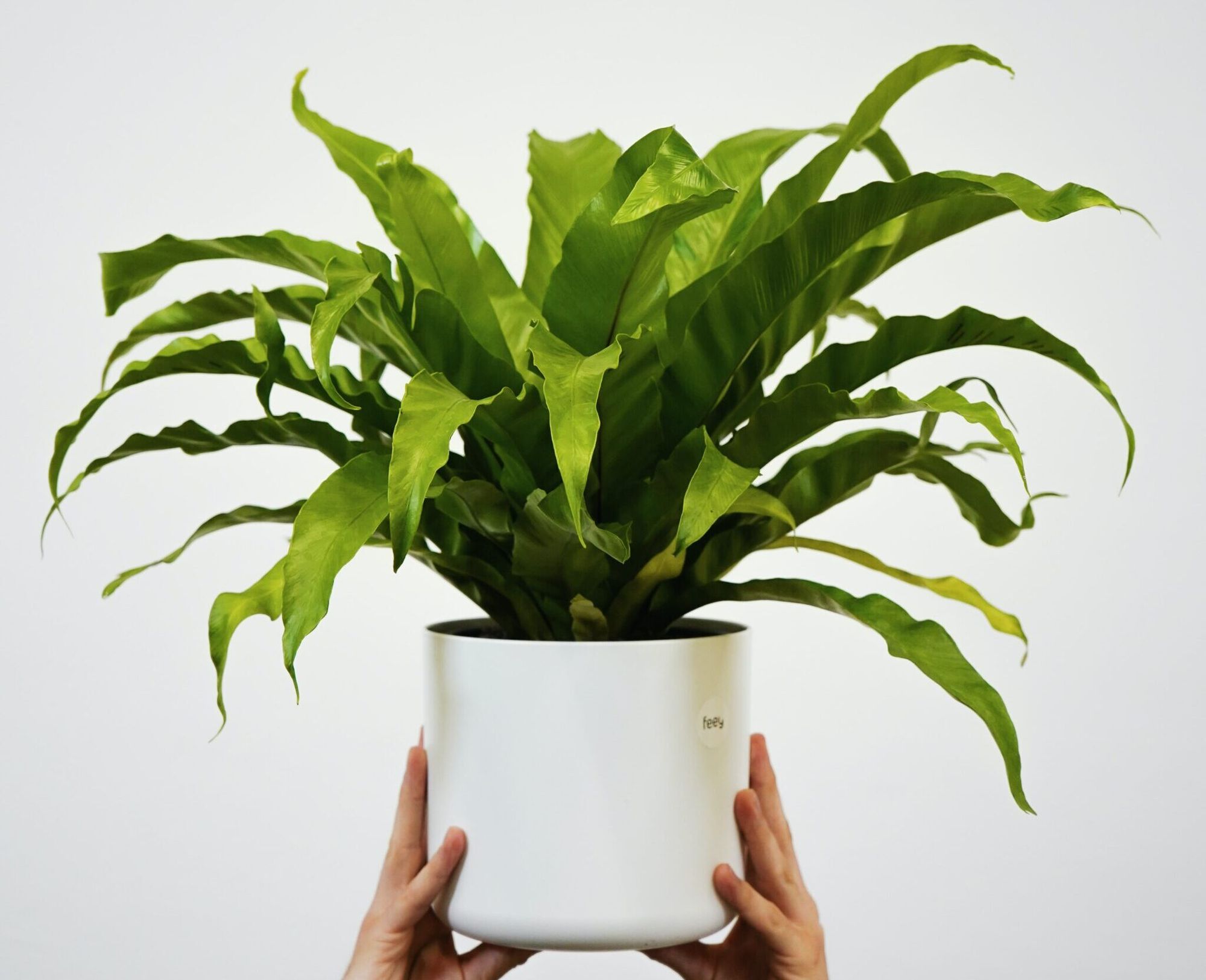
Birds Nest Fern: Best Indoor Plant for Your Bathroom
If you think your living room and balcony is too cluttered with plants, switch to decorating your bathroom instead. Ferns are native to the tropics and thrive in a humid environment, making it the perfect plant to put in your bathroom.
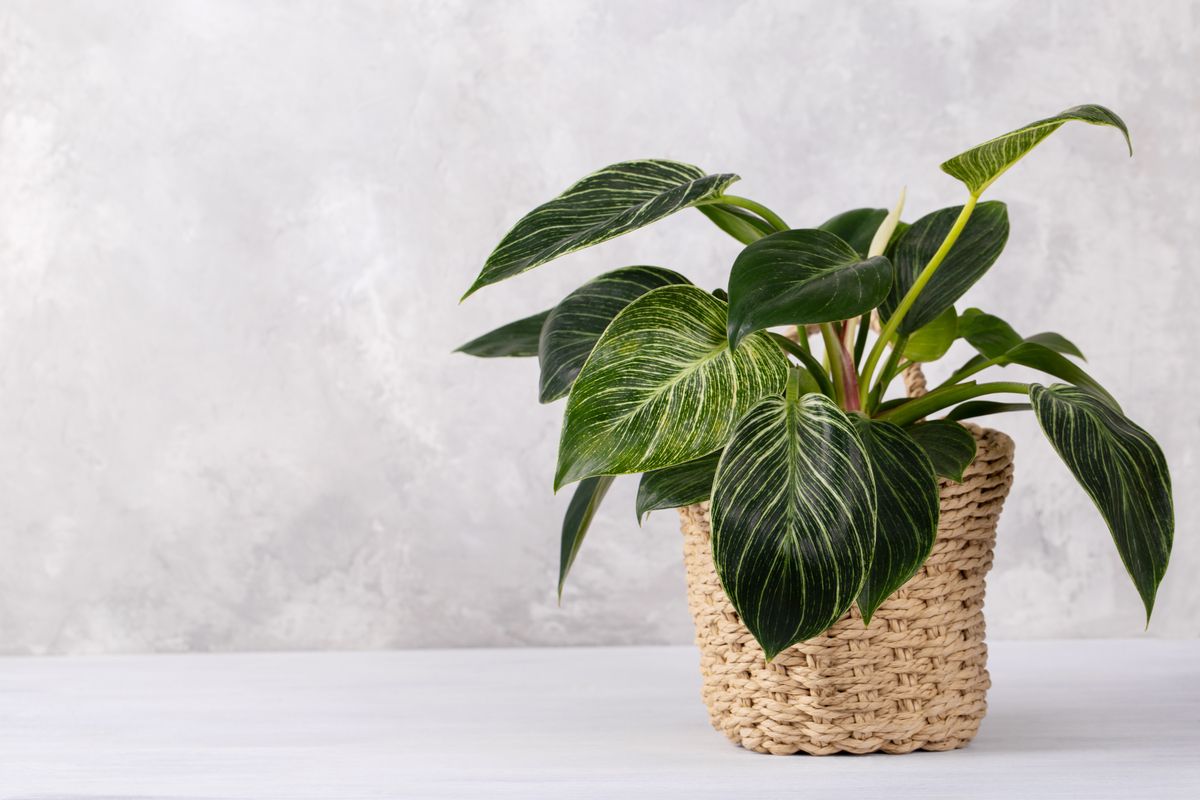
Philodendron Green: Best Indoor Plant For Areas With Lots of Natural Light
These indoor plants crave sunlight and will thrive in a super sunny home. The large leaves fan out in all directions, making it an attractive centerpiece to put on your countertop.

Best Flowering Indoor Plants
Anthurium: Known for their bold shade of red, anthurium can add a pop of color to your living space. The flowers are actually a modified lead, so unlike other flowers, the plant will be “blooming” all year round.
Phalaenopsis orchid: Compared to other orchids, this species is fairly forgiving towards beginners. As long as it is kept in bright, indirect light and watered every few weeks, beautiful orange flowers will bloom once a year.
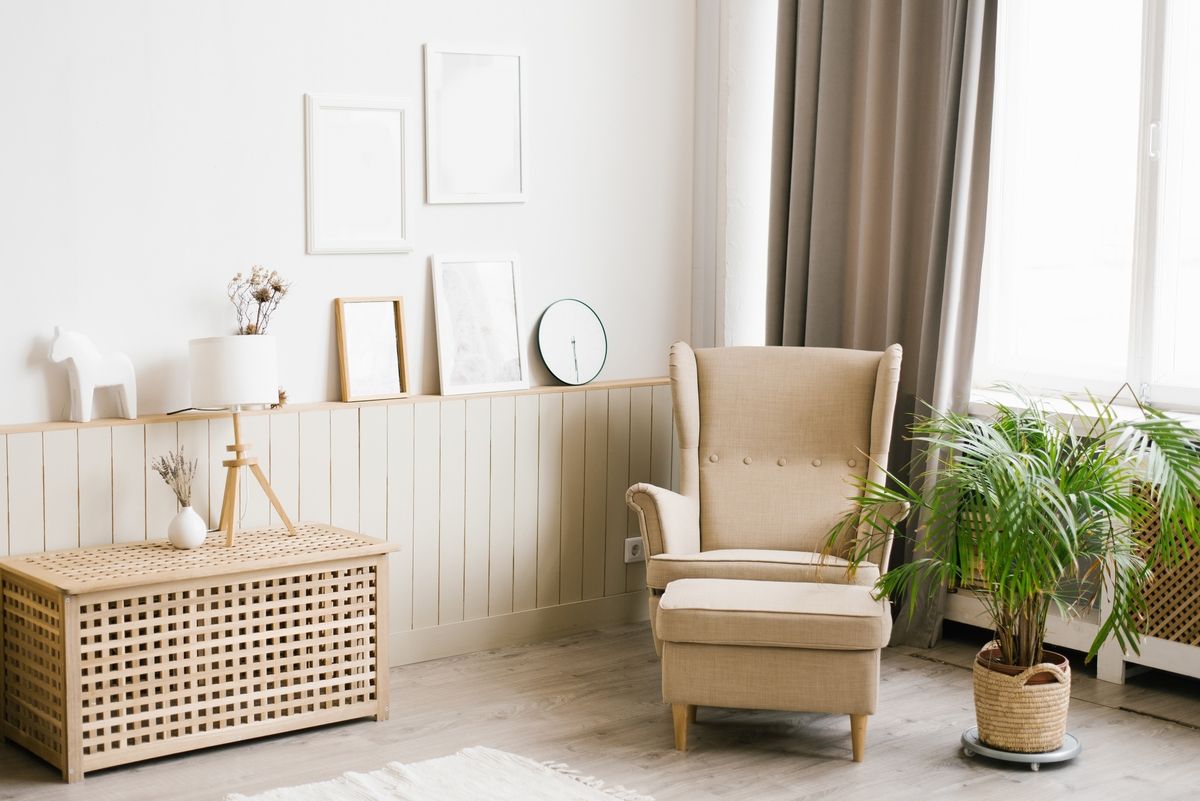
Parlor Palm: Indoor Plants for Clean Air
This indoor plant is reported to have air purifying abilities. It is claimed to be able to clear out benzene and trichloroethylene, chemicals that are commonly spread from furniture off-gassing. This tropical plant thrives in indirect to low sunlight and only requires watering once every 1-2 weeks. Besides that, this plant is non toxic, making it pet-friendly in case you have a puppy who likes to eat plants.
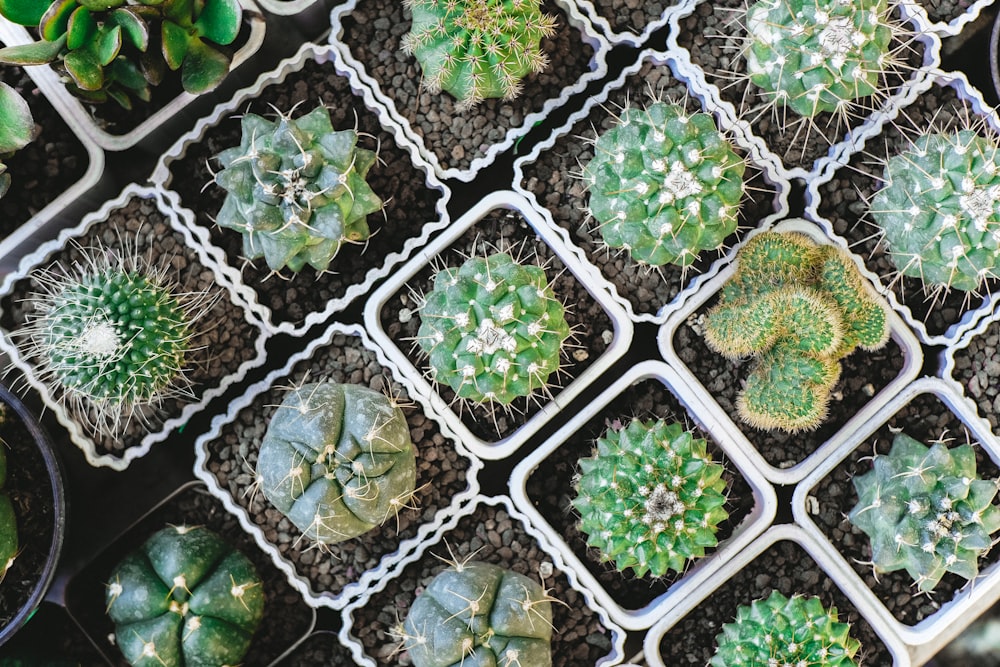
Cacti: An Indoor Plant That Builds Confidence
If you are the type of person who constantly forgets to water your plants, start with taking care of cactus plants. Taking care of cacti can increase your confidence in handling plants. Cacti don’t require as much water as other houseplants and thrive in direct sunlight. No two cactus plants are ever the same, so you can find some pretty unique cacti in all shapes, colors and sizes.
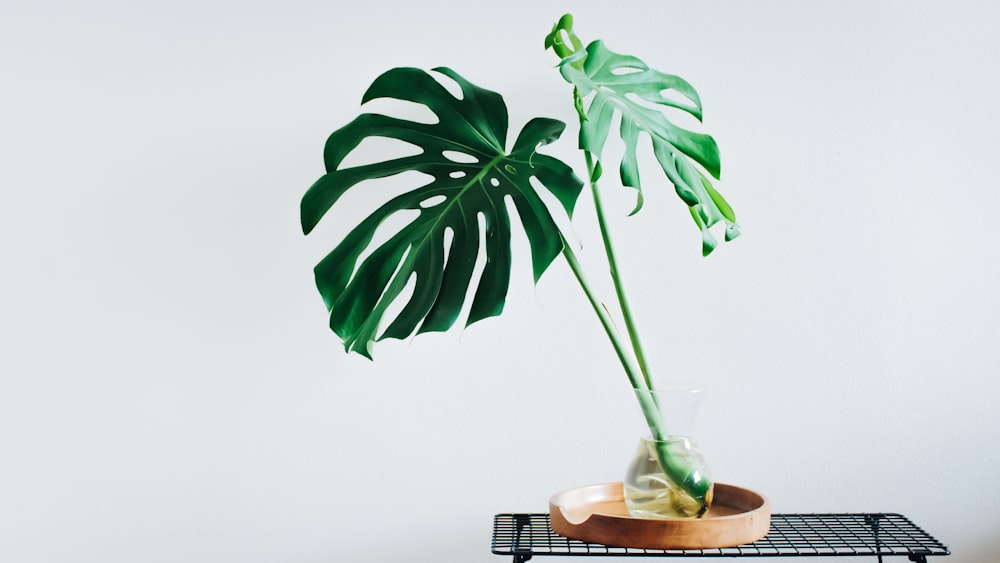
Monstera Deliciosa: Most Trendy Indoor Plant
If you’re ready to take on more responsibility, try the Monstera plants. The vibrant leaves are speckled with natural holes, giving it its signature look. These plants give off a tropical vibe and are trending all over Instagram and Twitter. It is still relatively easy to take care of this plant- simply water it every two weeks.
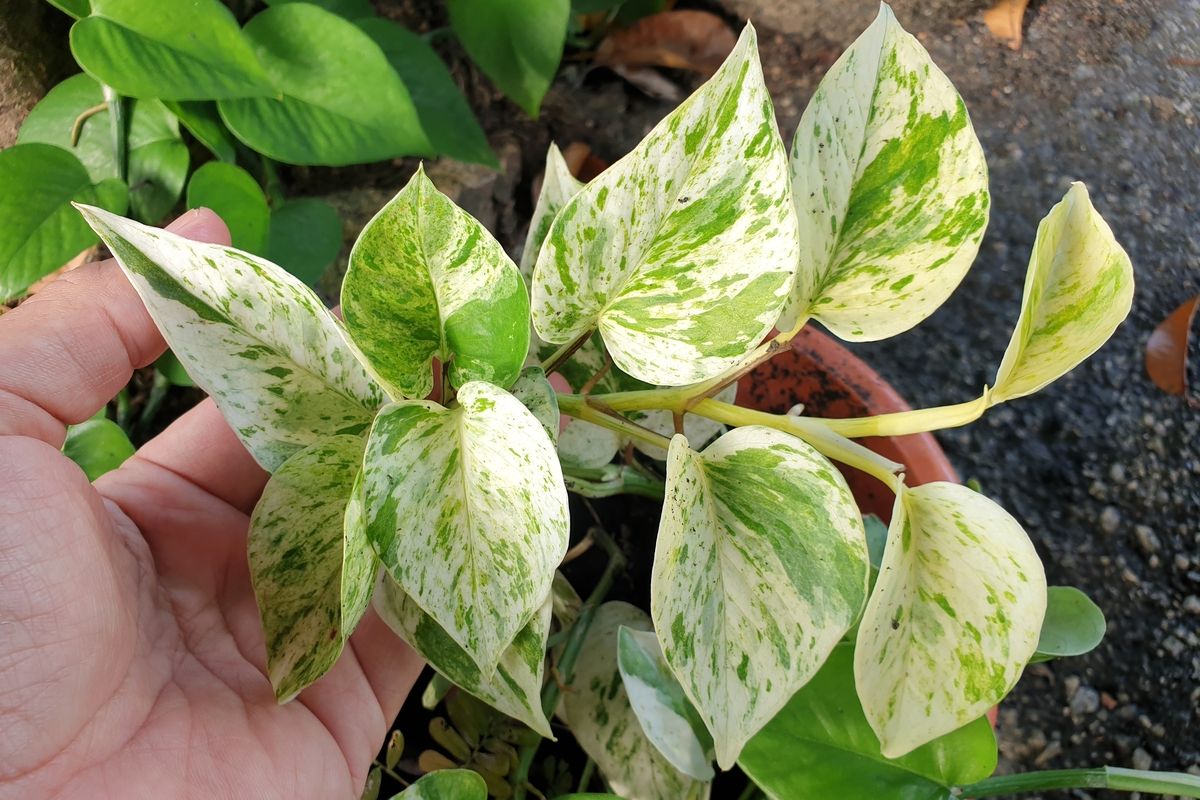
Marble Queen Pothos: Best Vine Indoor Plant
This indoor plant starts out small, but its vines can grow up to 11 feet long. Fill your shelves with this heart shaped beauty or hang it away from your pets. Its vines and tendrils cascade down the pot, giving it a beautiful shape. Besides that, this plant can thrive in low light conditions and a dry environment, making it the perfect for beginners.
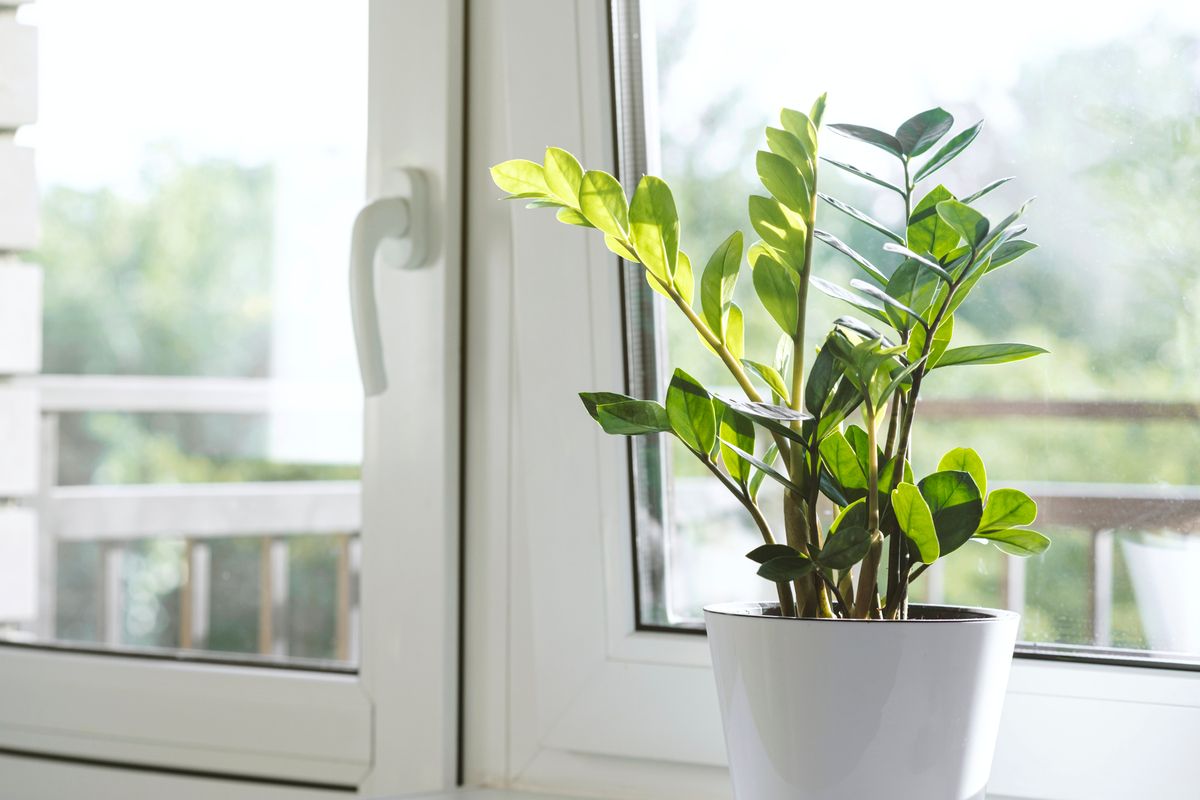
Zamaioculcas Zamiifolia: Best Low-Light Indoor Plants That Can Thrive in Dark Rooms
Zamioculcas zamiifolia, or better known as the ZZ plant is perfect for beginners. It can withstand infrequent watering and dry air, and low light environments, making it a hardy plant. In some cultures, it is believed to be the perfect housewarming gift as it is believed to invite friendship and prosperity.
Health Considerations to Keep in Mind if You Own Plants
Keeping plants in your home is the easiest way to spruce up your space. There are plenty of benefits of keeping houseplants, however, there are also several potential health risks. Here are some health risks to keep in mind.
Pest Infestations
Houseplants can invite an ecosystem of insects, molds, and other types of pests. Pay attention to the watering needs of different plants. Overwatering plants can create an ideal environment for mold and fungus to thrive. Check the plant leaves regularly for signs of pests such as egg, webbings and holes in leaves. Seek treatment if you spot any signs of pests as soon as possible to get the infestation under control.
Pay Attention to Whether Your Plants Trigger Allergies or Asthma
Pollen is a cause of allergies and asthma attacks. You may be relieved to learn that most houseplants do not produce much pollen. However, if you do experience allergies or asthma attacks, it is more likely due to the mold or fungi from excess soil moisture than pollen. Researchers reported that indoor exposure to mold and fungi can worsen asthma symptoms. If you notice asthma symptoms after purchasing a houseplant, get rid of the houseplant immediately and talk to a healthcare professional to get to the root of your issues.






